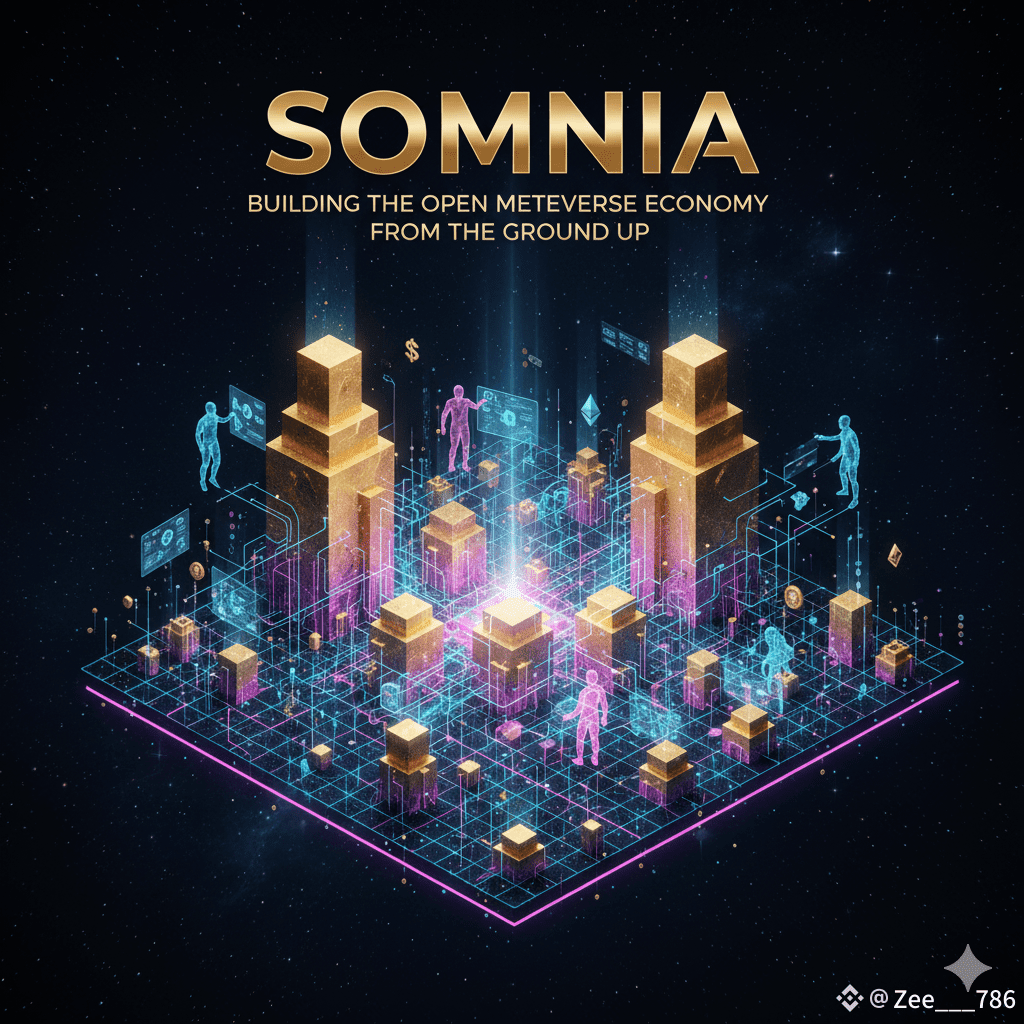
Most conversations about the metaverse focus on flashy graphics, VR headsets, or gaming hype. But what people often miss is that a true metaverse is not about visuals—it’s about the economy that powers it. Without an open, interoperable financial system, the metaverse becomes just another walled garden owned by big tech. Somnia is rewriting that story by designing the open economic layer for the metaverse—a foundation where assets, identity, and experiences flow seamlessly across worlds.
Somnia’s brilliance lies in infrastructure, not spectacle. Instead of building a single metaverse, it creates the rails for many. It offers developers the ability to launch worlds, games, and experiences that all plug into a shared liquidity and asset framework. Imagine buying a skin in one game and instantly using it in another, or carrying your DeFi-earned tokens into a metaverse marketplace without friction. Somnia makes that vision not only possible but scalable.
At its heart, Somnia is about ownership and interoperability. Current metaverse platforms are closed silos—your digital identity, items, and assets are locked in. Somnia flips that model by anchoring everything on-chain. Your avatar, your reputation, your in-game assets—all portable, tradable, and usable across ecosystems. It transforms digital worlds into a connected economic fabric rather than isolated playgrounds.
For builders, Somnia is a playground of opportunity. Its infrastructure supports everything from NFT marketplaces to tokenized economies, meaning developers don’t have to rebuild basic tools. For users, it means freedom: your time, assets, and creations retain value across platforms, creating a sense of permanence in digital life.
But here’s where it gets even more powerful: Somnia isn’t just about entertainment. It positions itself as the foundation for digital society. Education, workspaces, commerce, and communities can all exist inside this interoperable framework. If Web3 is about decentralizing the internet, Somnia is about decentralizing the very worlds we live in online.
The future metaverse won’t be owned—it will be shared. And when that future arrives, it won’t be powered by isolated giants but by networks like Somnia, ensuring that value, identity, and creativity belong to the people, not platforms.
Somnia isn’t asking us to imagine a new metaverse. It’s asking us to imagine a new digital civilization—and building the economy that will sustain it.

